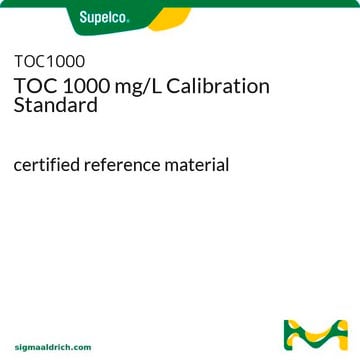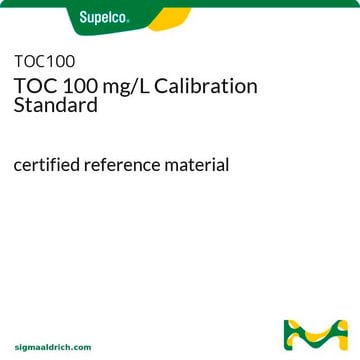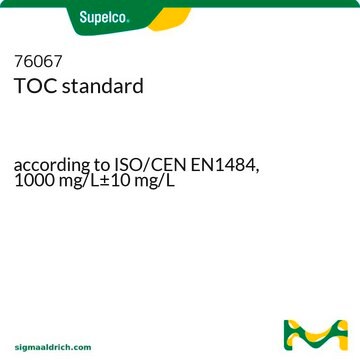14690
Bis(cyclohexanone)oxaldihydrazone
for spectrophotometric det. of Cu, ≥99.0%
Synonym(s):
Cuprizon, Cuprizone, Oxalic acid bis(cyclohexylidenehydrazide)
About This Item
Recommended Products
Quality Level
Assay
≥99.0% (N)
≥99.0%
form
powder
quality
for spectrophotometric det. of Cu
technique(s)
UV/Vis spectroscopy: suitable
mp
210-214 °C (lit.)
210-214 °C
SMILES string
O=C(N\N=C1\CCCCC1)C(=O)N\N=C2/CCCCC2
InChI
1S/C14H22N4O2/c19-13(17-15-11-7-3-1-4-8-11)14(20)18-16-12-9-5-2-6-10-12/h1-10H2,(H,17,19)(H,18,20)
InChI key
DSRJIHMZAQEUJV-UHFFFAOYSA-N
Looking for similar products? Visit Product Comparison Guide
Related Categories
General description
Application
Other Notes
related product
Storage Class Code
11 - Combustible Solids
WGK
WGK 3
Flash Point(F)
Not applicable
Flash Point(C)
Not applicable
Personal Protective Equipment
Choose from one of the most recent versions:
Already Own This Product?
Find documentation for the products that you have recently purchased in the Document Library.
Customers Also Viewed
Our team of scientists has experience in all areas of research including Life Science, Material Science, Chemical Synthesis, Chromatography, Analytical and many others.
Contact Technical Service






![Cyanide standard solution traceable to SRM from NIST K₂[Zn(CN)₄] in H₂O 1000 mg/l CN Certipur®](/deepweb/assets/sigmaaldrich/product/images/920/032/af45eec3-100b-4996-8eb3-c3942d441bc9/640/af45eec3-100b-4996-8eb3-c3942d441bc9.jpg)


